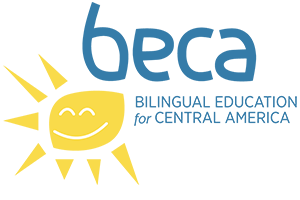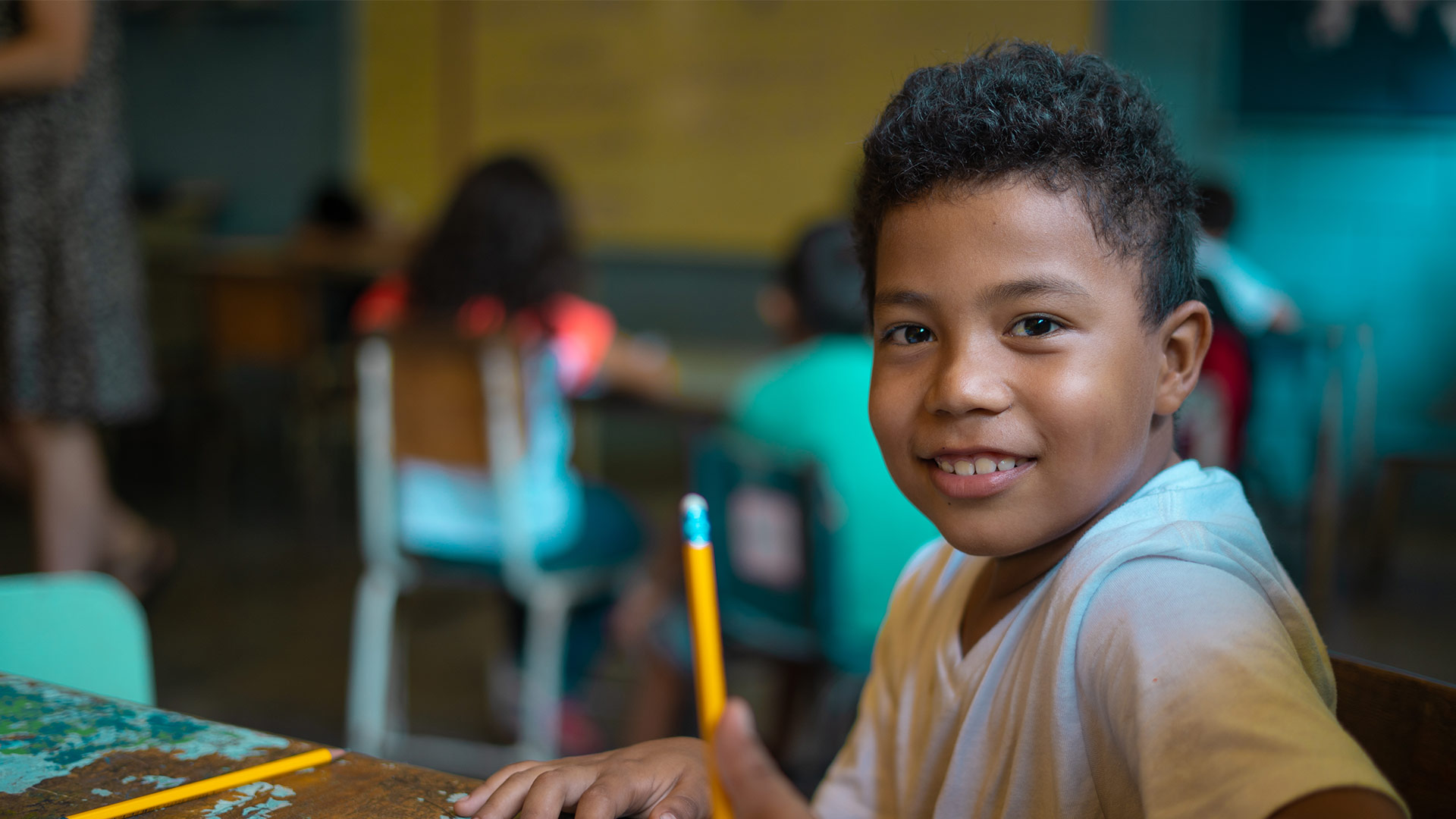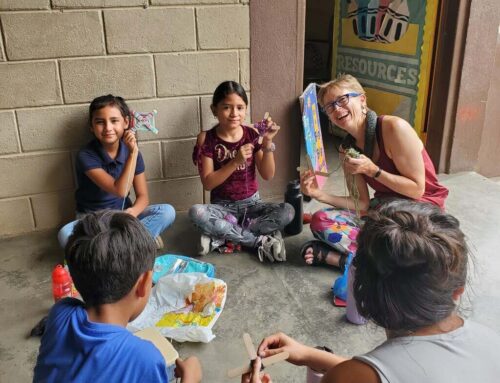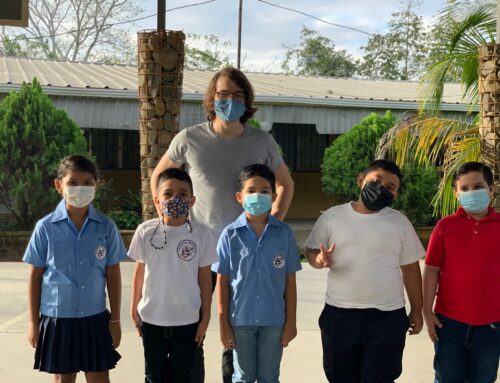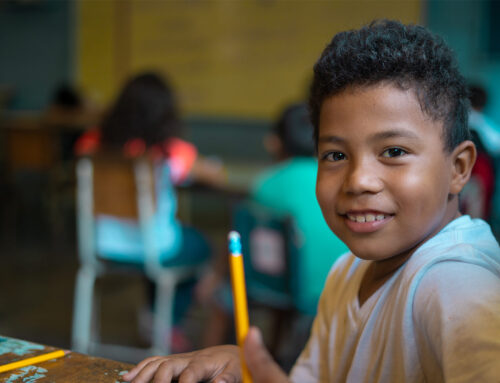I like to think that the development of the Amigos de Jesus Bilingual School in the past two years has mirrored my own personal growth during my time here. The first time I saw the school, still recently arrived to Honduras, the two most striking images were the library and the storage room. Both exemplified the untapped potential of the school—there was a ton of ‘stuff,’ much of it quite useful, but in neglected condition. The ‘storage room’ was a classroom filled with a labyrinth of desks, chairs, and forgotten things. The library was a more painful sight, with so many books in such a state of disarray. Both rooms were unpainted, lifeless grey walls magnifying their plight. There was certainly work to do. I didn’t know then just how much time and work I would end up investing in this school. I was only a few months removed from my college graduation, still mostly concerned with my sweaty, bug-bitten, Spanish-struggling self. Amigos de Jesus, to me, consisted of a blur of faces, too many names of kids running hither and fro. I may have been overwhelmed, but the excitement of this brave new world kept me smiling and mispronouncing greetings to children whose names I probably mixed-up.
Already though, I was familiar with the BECA (Bilingual Education for Central America) organization. Upon arriving to Honduras I had spent two weeks in BECA’s summer institute, a training program for their teachers that was offered to the Amigos volunteers. The BECA folk were a savvy group, and I enjoyed both the training and the connections I made. I left the training grateful for the experience and completely unaware that I would return to work with BECA. More on that later.
Afterwards the Amigos volunteers, myself included, finally began our life at the children’s home. After an orientation and a few weeks to get a feel for the place, we were handed our job placements. I was to report for duty at the school, to co-teach a brand new Kindergarten class alongside the bombshell Bostonian, Meg Ryan. My expectations were great. We rolled up our sleeves and tackled the aforementioned storage-room, hauling furniture and boxes with more zeal than expecting parents moving into their new home. We bought paint, spilled the paint (Meg!), bought more paint, and finally revived our grey classroom with a more appealing contrast of blue and yellow. I remember proudly examining our handiwork, hands-on-hips in the most cliché of poses, soaking in my ‘success’.
The first day of school soon arrived, and it took me a full four seconds to learn that paint on walls does not a classroom make. Now, I’m sure those reading this who’ve been blessed to work extensively with small children will knowingly smile and wink when I mention the word ‘challenging’ in this context. As humorous as they are in hindsight, there’s no need to get sidetracked by all the anecdotes of my adaptation process to the steep learning curve involved in managing children. Yet what stands out to me most during those months was how I was so intensely affected on a daily basis: deeply frustrated with my failures; overly pleased with my successes; disturbed by the situations these kids were coming from; learning to love the kids and completely investing myself in them. While all my internal chaos unfolded the other members of my volunteer group were similarly assimilating themselves into the school and home. We were a merry band of well-intentioned idealists, quite unqualified, but trying our best to learn as we went along. I’d be remiss not to highlight the assistance the Honduran staff offered at this point. I remember the principal, Edgardo Osman Quintanilla, walking into my classroom after a day in which the screams had been especially loud. He approached hands-in-pockets, with still something of a grimace on his face despite his efforts to put on an encouraging smile. The ensuing conversation contained some helpful advice, but more importantly it was a gesture of support that did wonders for my morale. Nevertheless, the grind continued.
Unbeknownst to me, the wheels were turning among the higher-ups as Amigos de Jesus and BECA were finalizing the plan for their partnership to found a BECA bilingual school at the children’s home. High-quality bilingual education in Honduras tends to be a privilege reserved for the upper echelon of Honduran society, but BECA began as an organization committed to bringing this quality education to those who most need it. Education can transform lives, but in Honduras a bilingual education can open doors, too. This partnership promised to bring new opportunities to the kids living at Amigos—radical opportunities all too rare for kids who were orphaned or found on the streets, survivors who need and deserve a great education. The partnership was formed. BECA would introduce their school the next calendar year.
Back at Amigos, the Christmas season rolled-in. Meg and I reached the Christmas school-break eager for the respite, despite having settled into a manageable routine. We would be evaluated in our one-on-one meetings with Amy and Wilson, the Amigos directors, to address what our roles would be in the upcoming year. Annoyed at the few butterflies fluttering in my stomach when my turn came, I tried to make myself comfortable on their couch as I leaned forward to learn what plans they had in store. Big plans. Big BECA plans. That’s when I learned that BECA would officially be joining the Amigos family. It was December, classes would start in August, and Amy and Wilson asked if I would help coordinate a transition period at the school to prepare the kids for the change and help BECA set-up shop.I realized right away the significance of what they were saying. The service that BECA could provide, based on what I had seen before, would be a night-and-day upgrade to the school’s current functioning. Any big change has its risks, but I knew our kids would reap incredible benefits. I believed a BECA education would improve their lives. I still do, even more so. That meeting changed the trajectory of my service in Honduras. Whereas before I was focused on my personal and spiritual development, which is a perfectly good and sufficient reason to serve, I became singularly centered on the project that was the new bilingual school. Extensive English classes were introduced to prepare the kids for their bilingual education, thanks to volunteers Rachel Severino and Joseph Sarappo. Jen Clark picked up the good work Joe had started organizing the library. I began working with Fran Talavera, in-country director of BECA, to lay down the groundwork for August. Because there weren’t enough Amigos students to completely fill up the classrooms, the school would open its doors to a limited number of students from the neighboring communities. Public outreach became a unique part of my job, as I helped brainstorm and implement ideas on how best to drum up support and enrollment for the school.
Along the way I applied to stay a second year at Amigos—this time with BECA, to continue working on the school. I needed to see the BECA-school operating with my own eyes. Every person who visits Amigos and spends time with our kids walks away foundationally affected, and this means something different for each person, but for me it was an obsession with this opportunity to leave behind something truly lasting. Thankfully, I was accepted for the position of Program Coordinator. Things came full circle. Once again I found myself at BECA’s summer institute, this time as a BECA volunteer. I met the three teachers who would form the inaugural BECA-Amigos staff: Elena, Karena, and Ben, to teach Kindergarten, 1st grade, and 2nd grade (respectively). They were exactly the people we needed. All three were professional, committed and conscientious, experienced volunteers familiar with Honduras and with a passion to serve the kids of Amigos. To borrow a Space-Jam metaphor (am I getting away with myself here?), they’re the Monstars of teaching.
August 22, 2013. I was too busy scrambling around, attending to all the details that popped up on the first day of school, to reflect on what was an incredible personal moment. The BECA-school was a reality. Our kids walked (in lines!) to their classes, took their seats. Teachers launched into their introductions. I had witnessed and participated in the mountain of effort by so many people to make it all happen. Yet ironically, the culmination of such work merely marked the beginning. It was only the first day of school.
That beginning period, as students and teachers alike adapted to the new school, was predictably hectic. But this was a much more productive chaos than what I’d experienced before. A revamped discipline policy included the school’s psychologists, the padrinos and madrinas (staff on the ‘home’ side of the orphanage), and the classroom teachers in the process of addressing misbehavior. Communication between the home and the school, the two halves of our kids’ lives, improved. Resources were available now—that weren’t available before—to provide substantial, individual, support to students who needed the extra attention. New teachers and a new curriculum brought higher expectations for our students; gradually, buoyed by the belief we held that they could succeed, our students reached those expectations. And then of course there’s the English language learning, something that’s been an absolute joy to watch. A classroom being taught in a foreign language can be such an intimidating challenge, that to see our kids persevere, overcome their doubts, and grow has been nothing short of inspiring. I believe this experience will transform their self-image, and give them the confidence to tackle future challenges and adventures, to say nothing of the practical benefits of bilingualism.
Ultimately, I want to see our Amigos kids become leaders when they grow up: for their families, their communities, and their country. They have stories and perspectives that need to be heard, and my hope is that BECA helps make that a reality. As the school has developed, so have I. I found a family at Amigos that embraced me and loved me. I’m lucky for the opportunities I received to take on increasingly greater responsibilities, and for the patience of those around me as I struggled to meet those responsibilities. And I’ve been able to meet extraordinary, interesting people from all over the world during my time here, drawn to this remote corner of Honduras by our similar desire to serve. I hope some of their essence rubbed off on me. The best thing of all, though, is that I’m happy. That’s one of the nice benefits I’ve found about service: it can make you truly happy.
And before I write-off: kudos to current Amigos de Jesus volunteer Joanna Gardner for the incredible labor she’s put into the seemingly-Sisyphean task of organizing our library. It’s a bona fide book-lover’s paradise now. Definitely not the only thing that’s changed around here.
